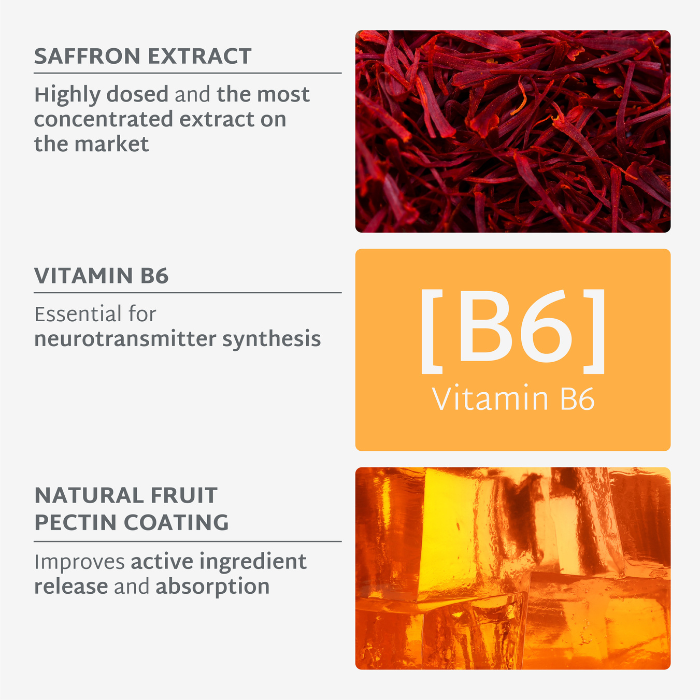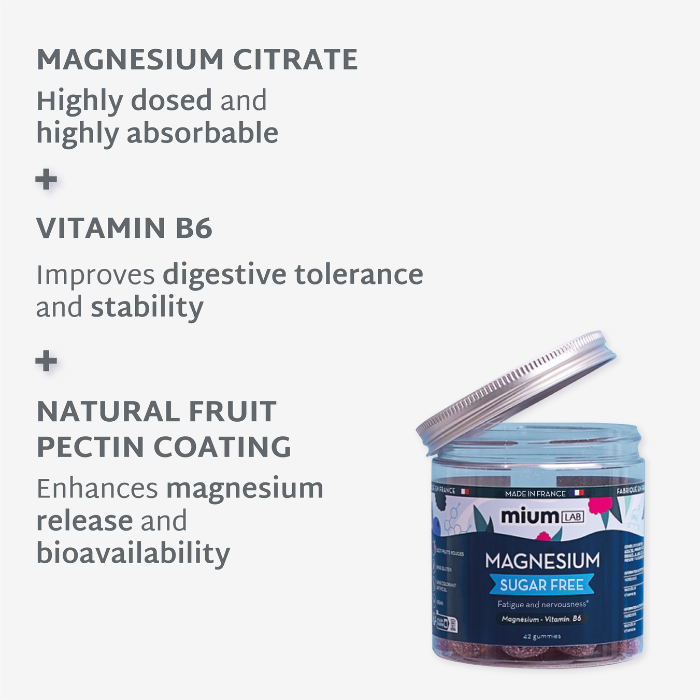Vitamin B6: an ally for well-being
What is Vitamin B6?
Vitamin B6, or pyridoxine, is a water-soluble vitamin. The body cannot synthesise or store it, making it an essential vitamin that must be obtained through our diet.
Like many B-group vitamins, it plays a significant role in energy production and protein synthesis. It is also essential in the formation of several neurotransmitters involved in mood (serotonin, melatonin, and dopamine) and enhances the action of magnesium in combating stress, which is its most well-known function. Consuming it as a dietary supplement can be a valuable ally for well-being.
Health benefits of Vitamin B6
The role of Vitamin B6 in energy production and protein synthesis
Vitamin B6 is essential for energy production and protein synthesis in the body. It facilitates the use of carbohydrates, lipids, and proteins, thus playing a crucial role in our energy metabolism.
Improvement of mood and well-being
It also contributes to the formation of neurotransmitters such as serotonin, melatonin, and dopamine, which are directly linked to our mood and well-being. Therefore, vitamin B6 is often considered a valuable ally in combating stress, significantly improving our psychological state.
How to reach the recommended daily doses?
Food sources of vitamin B6 are varied, including meats, offal, fatty fish, brewer's yeast, and many vegetables like bananas, cabbages, potatoes, and spinach. It's interesting to note that the form of vitamin B6 from animal sources is better absorbed by the body than that from plants. For those following a vegan diet or with increased needs, consuming dietary supplements can be beneficial.
History of Vitamin B6
Vitamin B6 is nicknamed the "muscle vitamin" due to its role in the synthesis of amino acids and proteins, essential for muscle repair and growth. Its history, beginning with Paul Gyorgy's research to combat a skin disease in rats, aptly illustrates the surprising trajectory of many scientific discoveries.








